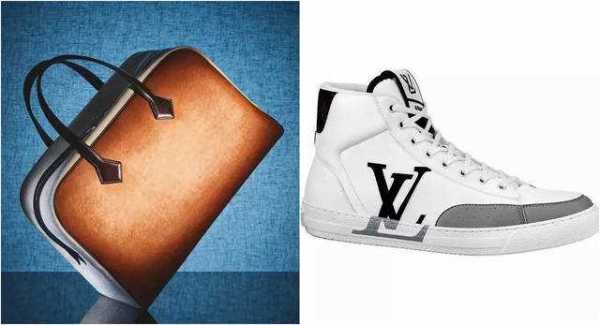
While Mumbai-based Pratiksha Mestry has been a vegetarian since childhood, according to her, she began using vegan products to support animal welfare. She cites several reasons for preferring vegan leather over animal hide. Pratiksha explains, “Original leather has a peculiar smell, which vegan leather does not. Moreover, I don’t need to polish vegan leather repeatedly; it’s easy to clean and doesn’t develop mould.” She further adds, “As it’s made from plant-based materials, it’s an upcycled way to repurpose waste. I’ve been using the same vegan bag for nearly a year now, and it seems quite durable to me, with no concerns about peeling or unnecessary maintenance.”
In another instance, Divya Sharma, a Delhi-based communications professional, recently switched to vegan leather. She ensures that she applies a ‘vegan leather’ filter when shopping for leather products online. “I initially had no idea what vegan leather was and felt uncertain about it. However, after trying it out, I found it to be eco-friendly and affordable. My first encounter with vegan leather was through a laptop bag, and now I always check for vegan options. It feels just as luxurious as traditional leather, and upkeep is easy — a quick wipe with coconut oil keeps it looking new. It’s far better than faux leather, though I’m still getting used to the idea.”
The luxury market is using vegan leather to attract eco-conscious customers
- Stella McCartney uses alternative materials, including vegan leather, which is made from renewable resources like vegetable oil
- In June 2021, Gucci launched Demetra, its own line of vegan leather. This material is partly plant-based, helping reduce its dependence on traditional petroleum-based synthetics
- Hermès has explored plant-based alternatives by working with a Californian start-up called MycoWorks, which creates leather from mushrooms. Hermès has used this material in its Victoria bag
- Louis Vuitton has also tried out leather alternatives. A few years back, it introduced Charlie, an eco-friendly shoe made from vegan leather, with the upper crafted from corn-based material
- Some luxury bag brands might be greenwashing when they use vegan leather. While they may advertise vegan leather as eco-friendly, many types are made from synthetic materials like polyurethane (PU) or polyvinyl chloride (PVC), which come from petroleum and can harm the environment.
 What is vegan leather
What is vegan leather
- Instead of using animal skin for a smooth leather look, vegan leather is typically made from plant-based or sustainable materials
- In India, manufacturers are making vegan leather using natural sources like plastic, agro-waste, flower waste, cactus, sugarcane, and peels of fruits such as banana, mango, apple, pineapple, etc
- These materials are processed and treated to mimic traditional leather’s texture, appearance, and durability, offering consumers a cruelty-free, eco-friendly alternative
- “Animal leather requires a lot of water (approx seven to eight litre) and chemicals for manufacturing, while plant-based material needs much less… Availability of animal skin is limited in India to produce original leather,” expressed Dr Palanisamy Thanikaivelan, chief scientist for CSIR-CLRI while speaking at the Vegan India conference
 Difference between vegan leather and plant-based leather
Difference between vegan leather and plant-based leather
- Vegan and plant-based leather are not the same. Vegan leather refers to any leather alternative made without animal products. It can be made from various synthetic materials, such as petroleum-based PVC (polyvinyl chloride) or PU (polyurethane)
- Plant-based leather is a type of vegan leather made from natural, plant-derived materials such as cork, pineapple leaves, apple peels, or cactus. It tends to be more eco-friendly than synthetic vegan leather due to its biodegradable or renewable source
- “Vegan leather and plant-based leather offer alternatives to traditional animal leather, but they differ in materials and sustainability. Plant-based leather, often seen as more eco-friendly, uses renewable resources and has the potential to be more biodegradable,” explains Pratik Dadhania, founder of a plant-based leather manufacturing company adding, “While it’s a hot-selling, premium option in the UK and the US, in India, the market is less demanding due to limited awareness.”
Vegan leather market globally
- Vegan leather market size is estimated to reach
$131.4 million by 2030
- Approx
9% growth rate between 2023-2030
(
as per a study report by Vantage Market Research)
Essential care tips:
- Use a damp cloth to wipe off dirt or stains. Avoid harsh chemicals
- Apply a small amount of coconut oil to keep it from drying out and cracking
- Store in a cool, dry place, away from direct sunlight
- Avoid overfilling/overloading the bag to prevent stretching and deformation
 While Mumbai-based Pratiksha Mestry has been a vegetarian since childhood, according to her, she began using vegan products to support animal welfare. She cites several reasons for preferring vegan leather over animal hide. Pratiksha explains, “Original leather has a peculiar smell, which vegan leather does not. Moreover, I don’t need to polish vegan leather repeatedly; it’s easy to clean and doesn’t develop mould.” She further adds, “As it’s made from plant-based materials, it’s an upcycled way to repurpose waste. I’ve been using the same vegan bag for nearly a year now, and it seems quite durable to me, with no concerns about peeling or unnecessary maintenance.”
While Mumbai-based Pratiksha Mestry has been a vegetarian since childhood, according to her, she began using vegan products to support animal welfare. She cites several reasons for preferring vegan leather over animal hide. Pratiksha explains, “Original leather has a peculiar smell, which vegan leather does not. Moreover, I don’t need to polish vegan leather repeatedly; it’s easy to clean and doesn’t develop mould.” She further adds, “As it’s made from plant-based materials, it’s an upcycled way to repurpose waste. I’ve been using the same vegan bag for nearly a year now, and it seems quite durable to me, with no concerns about peeling or unnecessary maintenance.”
 What is vegan leather
What is vegan leather Difference between vegan leather and plant-based leather
Difference between vegan leather and plant-based leather